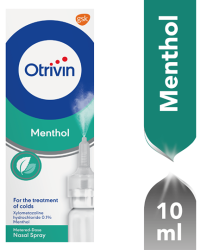Rinofed Syrup | 100Ml


Rinofed Syrup | 100Ml
rinofed
Rinofed is a medicine that contains proledin and pseudoephedrine as active ingredients. It is a combination medicine used to treat cold and allergy symptoms.
Renofide for infants
Renofide is not for use in infants and children under 2 years of age, and for older children, it is to be used under a doctor's supervision.
Rinnofeed for sleep
As a side effect, Renofide may cause drowsiness, but it is not approved for use in the treatment of insomnia. It may also cause irritability and nervousness in others, which may make it difficult to sleep.
Raynovid for cough
Rinofed is used to treat cough associated with infections of the upper respiratory tract, such as sinusitis, laryngitis, and bronchitis. Renofide is also useful for treating coughs with phlegm or even a dry cough.
What are the uses of Renofed?
The combination of Noreproldin and Pseudoephedrine is used for the following purposes:
For the temporary relief of cold symptoms.
paranasal sinuses.
Spring allergy (hay fever).
Respiratory infections (nasal congestion, headache, itchy skin and fever, watery eyes).
What are the contraindications for using Rinofed?
Hypersensitivity to any of the components of this drug.
It is forbidden to use pseudoephedrine-containing medicines within 14 days with monoamine oxidase inhibitor medicines because of the risk of a hypertensive episode.
Severe hypertensive patients and heart patients.
What are the side effects of Renofide?
Triproledine and pseudoephedrine may cause the following side effects:
Circulatory system: tachycardia.
Central nervous system: dizziness, fatigue, headache, insomnia, nervousness.
Gastrointestinal: abdominal pain, increased appetite, diarrhea, nausea, weight gain.
Genitourinary system: dysuria.
Neuromuscular and skeletal system: arthralgia, general weakness.
Respiratory system: laryngitis, thickening of respiratory tract secretions.
Other symptoms: sweating.
What are the precautions for using Rinofed?
It should be used with caution and under the supervision of a physician for the following groups:
patients with acute coronary artery disease.
Diabetes: May affect blood glucose control.
Heart disease: increased risk of arrhythmias.
Prostate enlargement.
Hyperthyroidism.
closed-angle glaucoma.
Impaired kidney or liver function.
Triprolidine and pseudoephedrine for children
Avoid using it in children under two years.
Triproledine and pseudoephedrine for pregnant women
It is best avoided, and never used in the last trimester of pregnancy before childbirth.
Triproledine and pseudoephedrine for lactating women
May be excreted in breast milk, it is best to avoid it.
Triprolidine and pseudoephedrine and pressure
It leads to high blood pressure, or worsens blood pressure in patients, so it is used with extreme caution for this group.
What are the drug interactions with Renofide?
The doctor or pharmacist must be informed of all medications, herbs, and nutritional supplements that the patient is taking before starting treatment.
It may interact with the following medicines:
isocarboxazid
selegiline selegiline.
linezolid
potassium.
Aspirin.
acetaminophen;
What are the storage conditions for Rinofed?
Store at room temperature, away from heat and moisture, and out of reach of children.
How to use Rinofed
This medicine is given as instructed by the doctor.
This medicine may cause drowsiness, so you should not drive or operate heavy machinery while using this medicine.
Thanks to the use of this drug 1 to 3 hours before exposure to agents that cause allergic reactions.
Take this medicine with food.
This medicine is available in liquid form in case the patient cannot take the pills.
The patient is advised to drink plenty of fluids that do not contain caffeine unless the doctor tells the patient to reduce the amount of fluids.








































